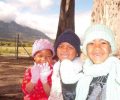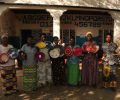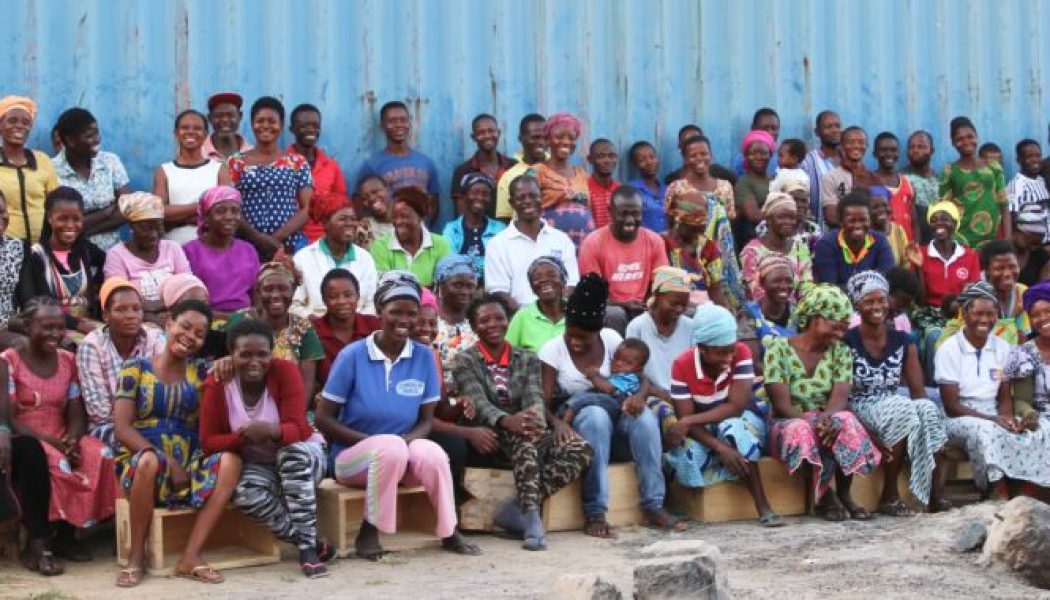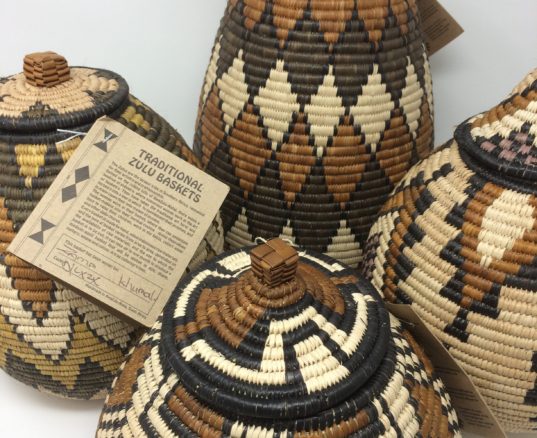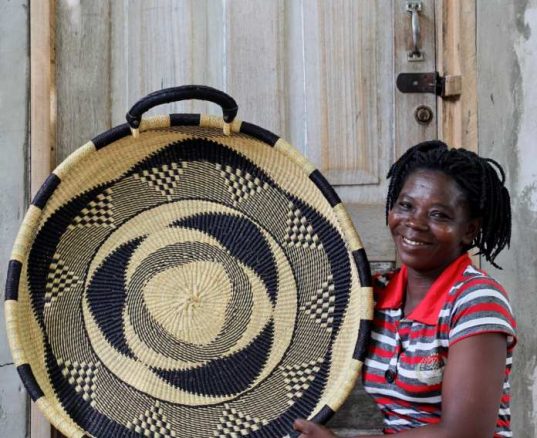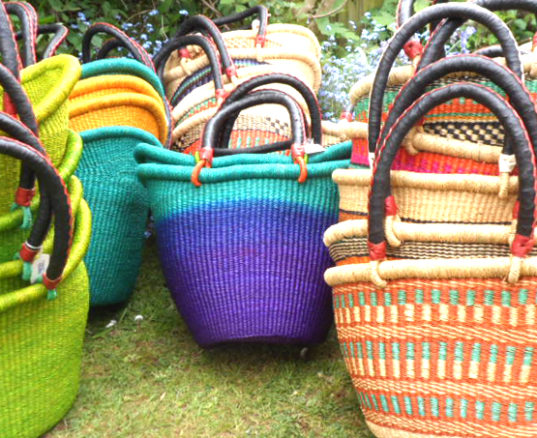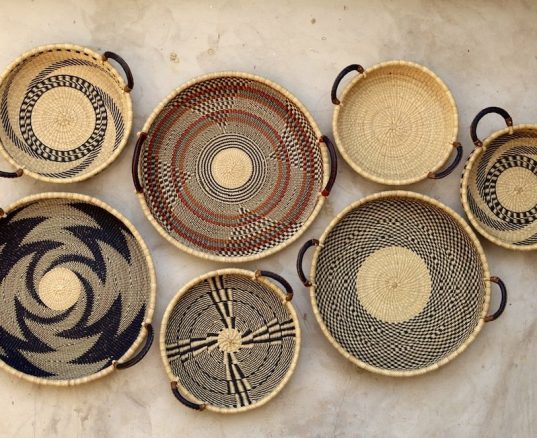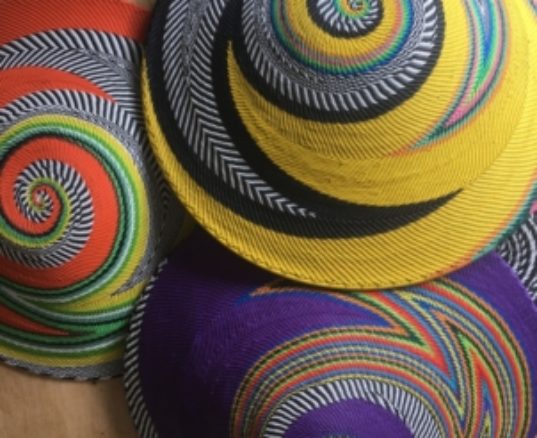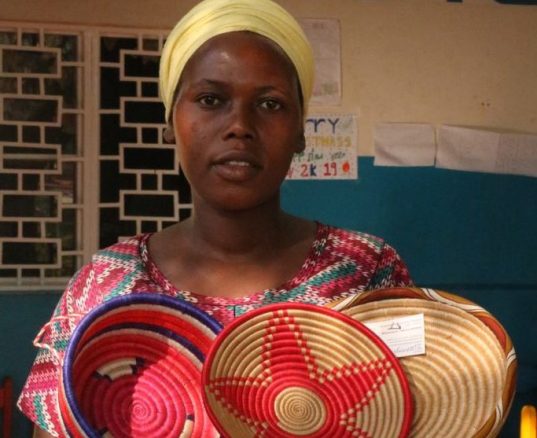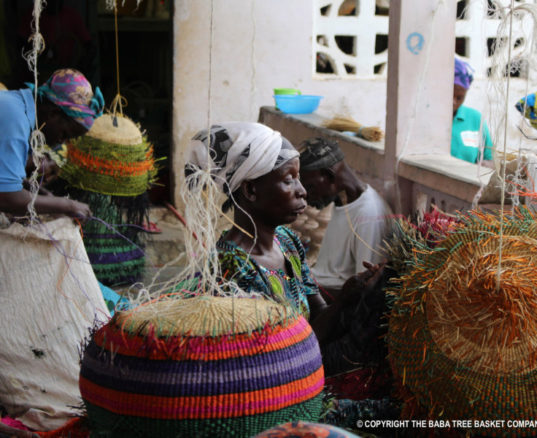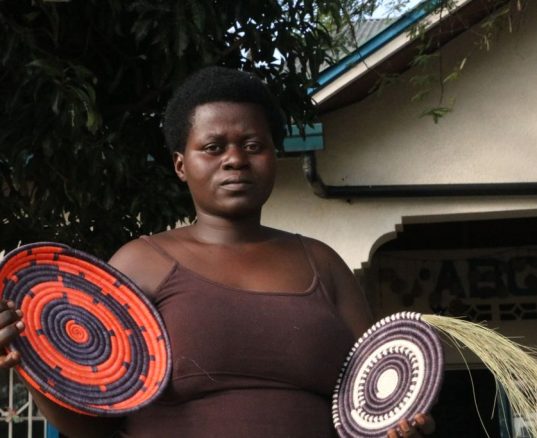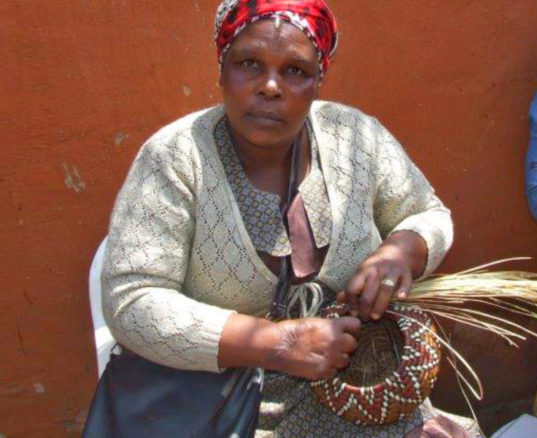Here is an extract from a very honest update from the founder of Baba Tree Baskets – Gregory McCarthy. We hope that it goes a long way to helping you to understand the problems that are faced every day in weaving the beautiful baskets that they produce. We are very proud to be connected with this wonderful organisation that is doing so much to help and guide the Artisans who make the baskets.
“We need more space to work and for storage. Some of our weavers work in cramped conditions which I find unsatisfactory. More weavers want to come and work here and we can’t accommodate them owing to a lack of space.In addition, if it rains we have nowhere to pack orders.We have no room for dedicated teams to work on new designs and designs that have been submitted. We need more space.
The Baba Tree has a small sum of money. We will be using that money to get as much of our operations on solar technology starting with our dyeing process. Presently, we use fire wood to heat our dye pots when we dye our straw.I have never been comfortable with this. My dye people look like shit at the end of a day of dyeing breathing in smoke from fires and the fumes from the chemical dyes. The people from whom the Baba Tree buys its firewood are cutting down trees – or limbing them – when we should be planting trees. Many trees…
We also have to come up with an effective way to deal with disposing our dyes. At the moment, we do a ghastly job of it. I’m not sure how to go about it…However…mea culpa.
There is a population explosion in and around Bolgatanga. At the Baba Tree, the number of pregnant women (some with many children already) and women with much loved babies and or toddlers is astounding. The government will have a difficult time keeping up – infrastructure wise – let alone the the fact that the amount of arable land in this region for growing foodstuffs to feed the growing population is dwindling. When time permits, we’ll have a sit down with our women to see if they need, or want, assistance with ‘family planning’ and take it from there.
Plastic is a huge problem in Ghana as it is all over the world. It’s everywhere. It is strewn about the river behind us and piles of it sit near our property. People then gather it together and burn it – and the surrounding fragile bush, creating a toxic atmosphere – especially during the Harmattan. We have suddenly dropped our tools many times in order to put out fires in our area.
On a couple of occasions, the Baba Tree crew – about 150 of us – have gone about picking up trash all around our neighbourhood and filled large dumpsters that were then taken away by the local sanitation contractor, Zoom Lion. This isn’t a solution. We have already powwowed with the local government regarding this crisis in order to put a stop to people, businesses (including monied churches) and monied schools (so much for teaching practical knowledge) dumping plastic in the river and surrounding environs and hope to be putting money towards appearing quite frequently on local radio stations in order to talk about, and find solutions to this quagmire. We have to stop people using plastic.
The Baba Tree will possibly be fitting a concrete platform on our property that will hold a skip that the neighbourhood can use to dump their garbage. Again, this is not a solution to the crisis we find ourselves in because there is no ‘away’ to throw the garbage. Baba Tree employees are not allowed to bring plastic bags to the compound. There are many sellers of fruit, dried fish, ju-ju, night power medicine, and clothing that come to the compound and they are not allowed to serve their goods in plastic bags.
Earlier this year we installed one 40′ container, drilled a borehole and put in a water filtration system that serves clean water to all at the Baba Tree and the surrounding neighbourhood. After the second 40′ container is installed, we will build a roof over the two 40′ containers and the solar system will be installed on that roof – starting with a hot water system first.
We will take our first baby steps toward researching and utilizing natural dyes. The dyes that are predominantly used in Bolga for dyeing straw are not natural despite the fibs that other websites will tell you. The straw that we use is not an easy material to dye. If all goes well, we will make available a range of products that are naturally dyed.
Again, if all goes well, we will have an in house designer starting in the next few months. She will help finish off many designs that have been on the drawing board and will create new designs. She will also put her talents to work styling our products – which I do a woeful job of – and take the pressure off of me social media wise. Coming up with new designs will allow us to move weavers who usually work outside of our compound weaving 4 older styles of baskets that we sell, and don’t get paid well for their work, into new and more profitable work. Exciting!!!!!!!
Further down the pipeline we want to build a dedicated area for mothers, infants and toddlers to be whilst their mothers weave. A ‘madame’ in the form of an early childhood educator will be hired to take care of the children. Trees, fences and composting toilets (a very simple version) are in the works too.
Some people say that the Baba Tree is too expensive and they can buy our designs elsewhere at cheaper prices. Do other producers that copy us by lifting our designs and shapes straight from our website and social media have the same overheads that includes a staggering amount of money that goes to medical expenses and school fees? I doubt it…But these outgoings we fork out every day. It’s our life. It’s what we do…
We have no interns or volunteers (otherwise known as ‘free labour’) and we don’t get any grants from any government organisations nor NGOs. However, in terms of technical advice around solar energy, we might have to enlist the services of an NGO.”
It’s very hard for people to understand the challenges that are faced every hour of every day by these people but just look at the smiles on their faces.
Thank you for buying your Bolga baskets from us and your continued support – it really does make a difference.

